
DHT Blockers: The Essential Guide for Hair Loss
DHT blockers reduce the effects of dihydrotestosterone on scalp follicles, which can slow pattern hair loss in people who are genetically sensitive to DHT. Prescription options like finasteride are the best-studied, while “natural” ingredients tend to have weaker evidence. Most meaningful changes take months, and side effects and pregnancy precautions matter.
This information is educational and does not replace medical advice. If hair loss is sudden, patchy, painful, or paired with scalp scaling, see a dermatologist to rule out other causes.
What Is DHT?
Dihydrotestosterone (DHT) is a hormone made when the body converts testosterone using an enzyme called 5‑alpha‑reductase. DHT has normal roles in the body, but in androgenetic alopecia (pattern hair loss), it can shorten the hair growth cycle and gradually miniaturize follicles.
Not everyone with DHT experiences hair thinning. The key factor is genetic sensitivity in scalp follicles, which makes the follicles react more strongly to DHT over time.
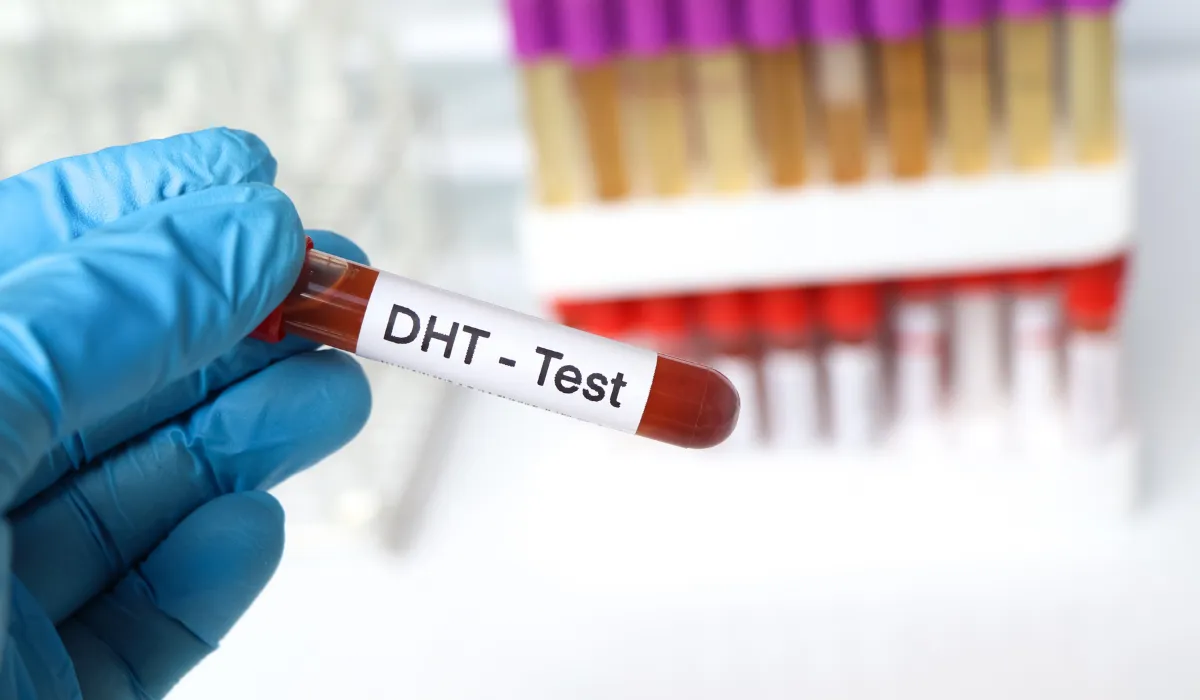
How DHT Contributes To Pattern Hair Loss
In androgenetic alopecia, affected follicles shrink and produce thinner, shorter hairs with each cycle. Over time, those hairs may become so fine that the scalp looks less dense, especially at the hairline and crown.
Because pattern hair loss progresses slowly, early treatment usually gives the best chance of maintaining density.
How DHT Blockers Work
Most DHT blockers work by lowering DHT levels or reducing DHT activity around the follicle. The main medical approach is inhibiting 5‑alpha‑reductase, which reduces the conversion of testosterone to DHT.
DHT blockers do not create new follicles. They aim to slow miniaturization and help existing follicles produce stronger hairs.
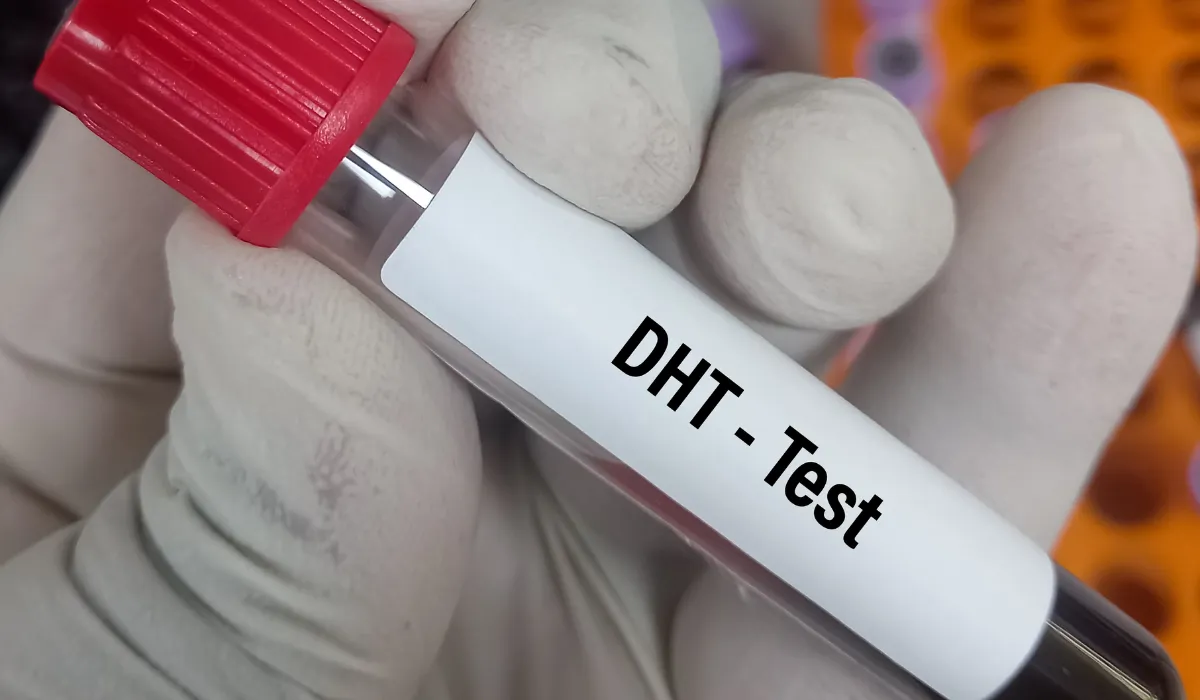
Prescription DHT Blockers
Finasteride
Finasteride is a 5‑alpha‑reductase inhibitor commonly prescribed for male pattern hair loss. It is typically taken daily, and studies show measurable improvement in hair count within about 6 months for many users, with continued gains over a year.
Finasteride is not recommended during pregnancy and should not be handled by people who are or may become pregnant. If you are trying to conceive or have fertility concerns, discuss the risks and timing with a clinician.
Dutasteride
Dutasteride inhibits more than one form of 5‑alpha‑reductase and can reduce DHT more strongly than finasteride. In studies, it often performs as well as or better than finasteride for hair count, though it may be prescribed off‑label for hair loss in some regions.
Because it is potent and stays in the body longer, medical supervision is especially important. Side effects can overlap with finasteride, and pregnancy precautions also apply.
Topical Finasteride And Combination Treatments
Topical finasteride aims to deliver the medication to the scalp while limiting whole‑body exposure. Some people use it alone or alongside minoxidil, depending on tolerance and goals.
Formulation and dosing vary widely between products and pharmacies. A dermatologist can help choose an option and track results safely.
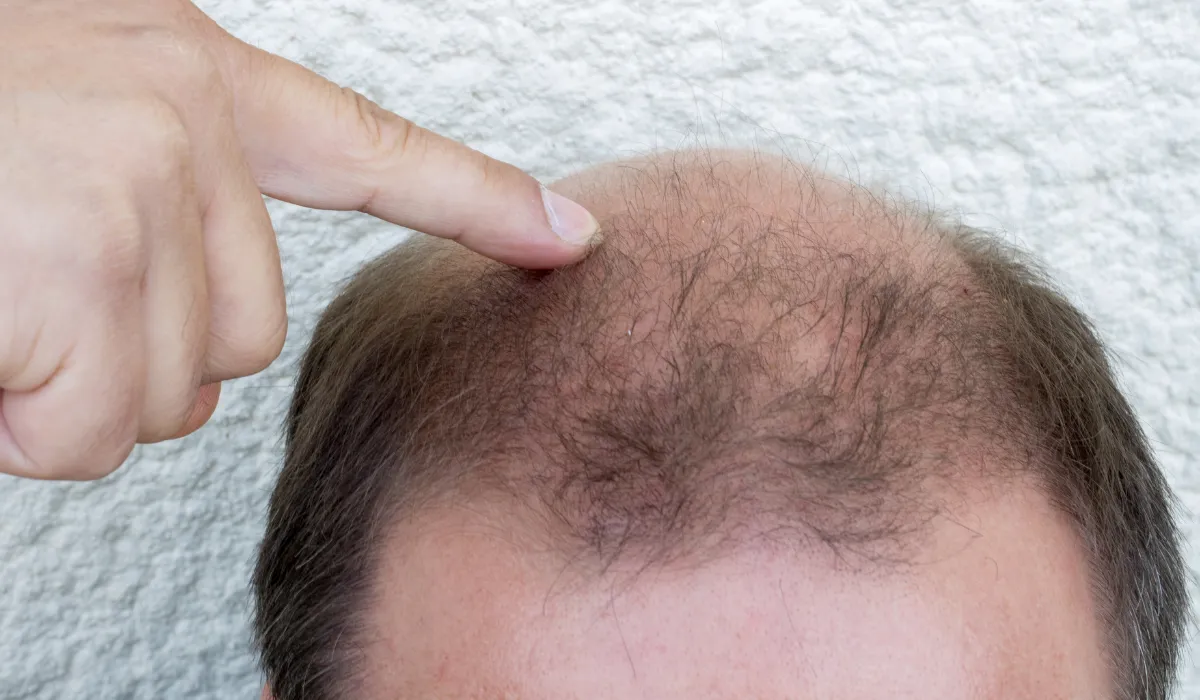
Natural And Over‑The‑Counter DHT Blockers
“Natural” DHT blockers are usually supplements or topical ingredients marketed to support hair growth. Evidence is mixed: some studies suggest modest benefits, but results are generally smaller and less consistent than prescription therapy.
Common Ingredients
Saw palmetto is the most studied supplement in this category and may help some people, especially when used in multi‑ingredient formulas. Pumpkin seed oil and green tea extract are also popular, but the clinical data is less robust.
If you take supplements, check for third‑party testing and avoid stacking multiple hormone‑active products. Supplements can still cause side effects or interact with medications.
Ketoconazole Shampoo And Scalp Care
Ketoconazole shampoos are sometimes used as an add‑on for scalp inflammation and dandruff, which can worsen shedding. They are not a stand‑alone DHT blocker, but good scalp hygiene can support treatment consistency.
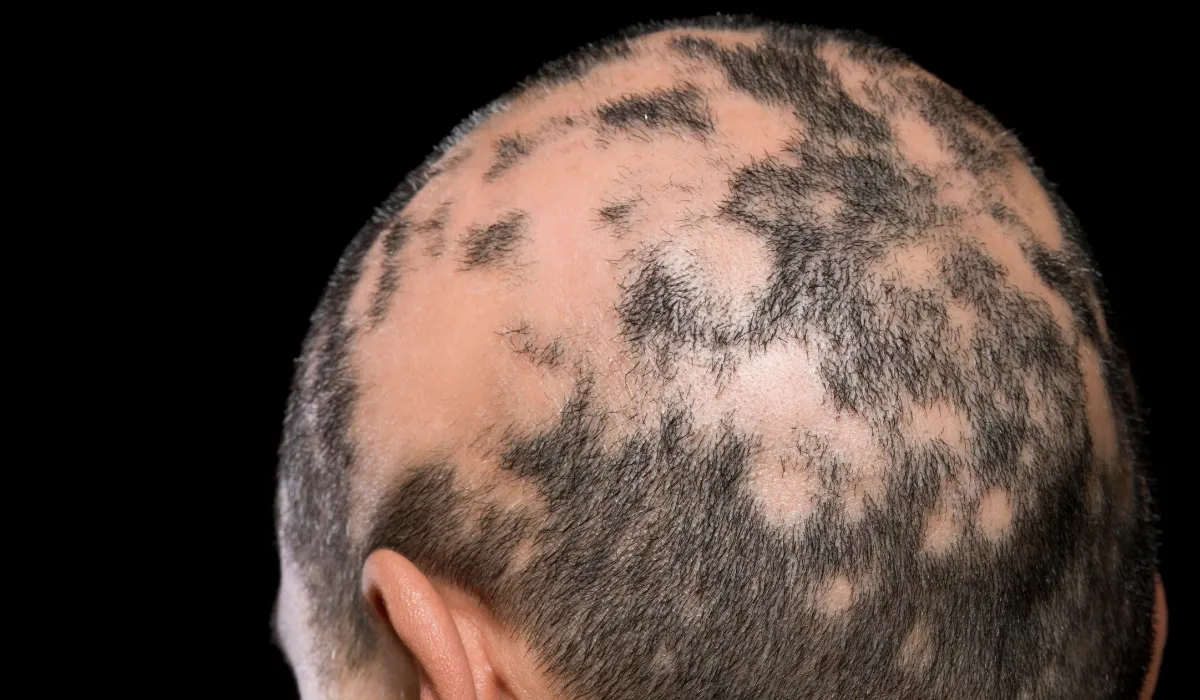
Side Effects And Safety Considerations
Possible side effects with 5‑alpha‑reductase inhibitors include decreased libido, erectile or ejaculatory changes, and mood-related symptoms in a subset of users. Many people have no noticeable side effects, and some effects resolve after stopping.
If you notice persistent sexual side effects, new depression or anxiety symptoms, breast tenderness, or a lump, stop the medication and seek medical advice promptly.
Who Is A Good Candidate For DHT Blockers?
DHT blockers are most useful for androgenetic alopecia (pattern hair loss). They are less likely to help shedding driven by iron deficiency, thyroid disease, traction, autoimmune conditions, or acute stress-related telogen effluvium.
Women can experience pattern hair loss too, but medication choices depend on pregnancy potential and hormone history. A clinician can confirm the diagnosis and discuss safer options.
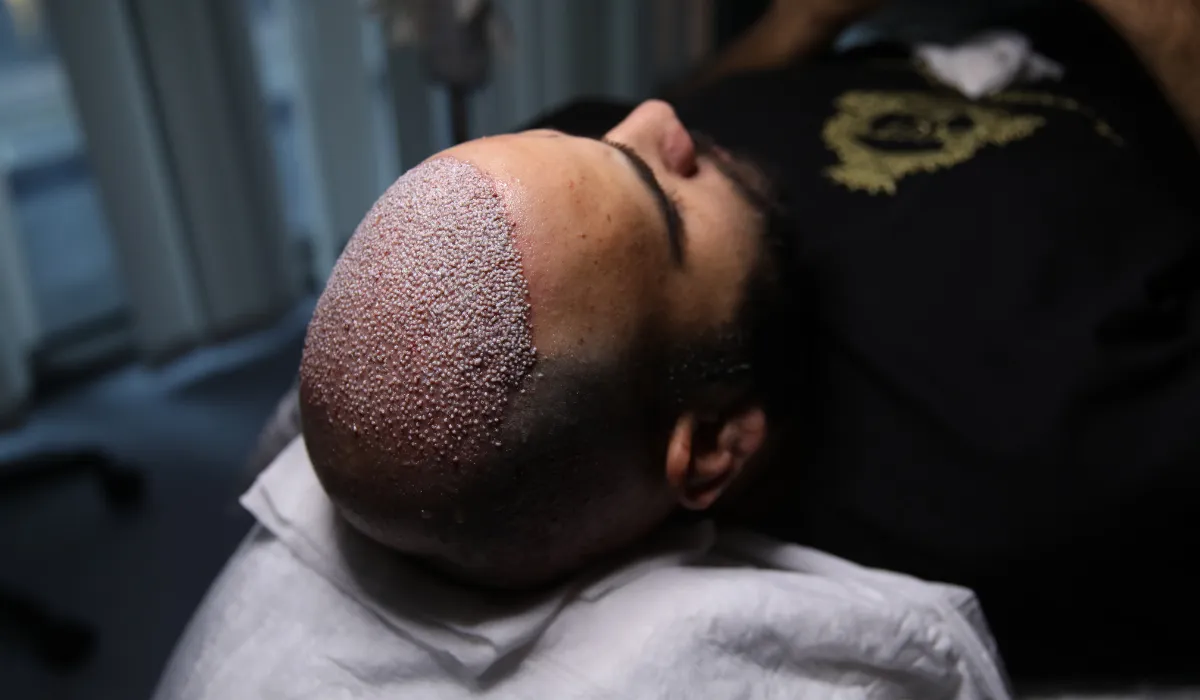
When To Expect Results
Hair grows slowly, so patience matters. Many people notice reduced shedding first, then gradual density changes. A realistic window is 3–6 months to see early improvement, with clearer results around 9–12 months.
If you stop a DHT blocker, any maintained benefit usually fades over several months as follicles return to their baseline pattern.
Alternatives And Add‑On Treatments
Minoxidil (topical or oral, prescribed) is a common companion treatment because it works through a different mechanism. For some people, combining minoxidil with a DHT blocker improves overall response.
Other options include platelet-rich plasma (PRP), low-level laser therapy, microneedling, and hair transplantation for advanced loss. Lifestyle basics—adequate protein, sleep, and managing scalp irritation—help support any regimen.
FAQ
Do DHT blockers really work for hair loss?
They can help when hair loss is driven by androgenetic alopecia. Prescription 5‑alpha‑reductase inhibitors are the best supported by clinical evidence. Results vary by genetics, how early treatment starts, and how consistently it’s used.
Are side effects common?
Most users tolerate treatment well, but side effects are possible. If side effects occur, discuss dose, formulation, and alternatives with a clinician rather than pushing through symptoms.
What else can I do besides DHT blockers?
Minoxidil is a first-line non-hormonal option for many people. If you want procedural support, PRP and low-level laser therapy may help some patients. For significant recession or thinning, a hair transplant can be considered once hair loss is stable.
When should I see a dermatologist?
See a dermatologist if hair loss is rapid, patchy, or accompanied by itching, pain, scaling, or scarring. It’s also worth getting evaluated if you’re not sure whether your pattern matches androgenetic alopecia or if you have medical conditions that affect treatment choices.




